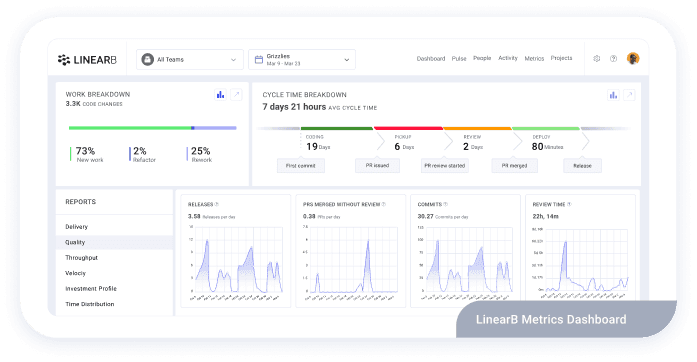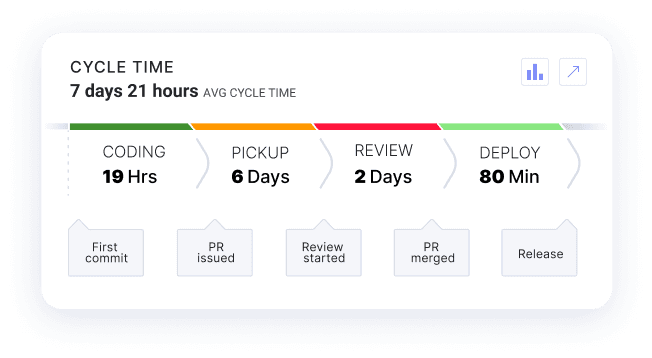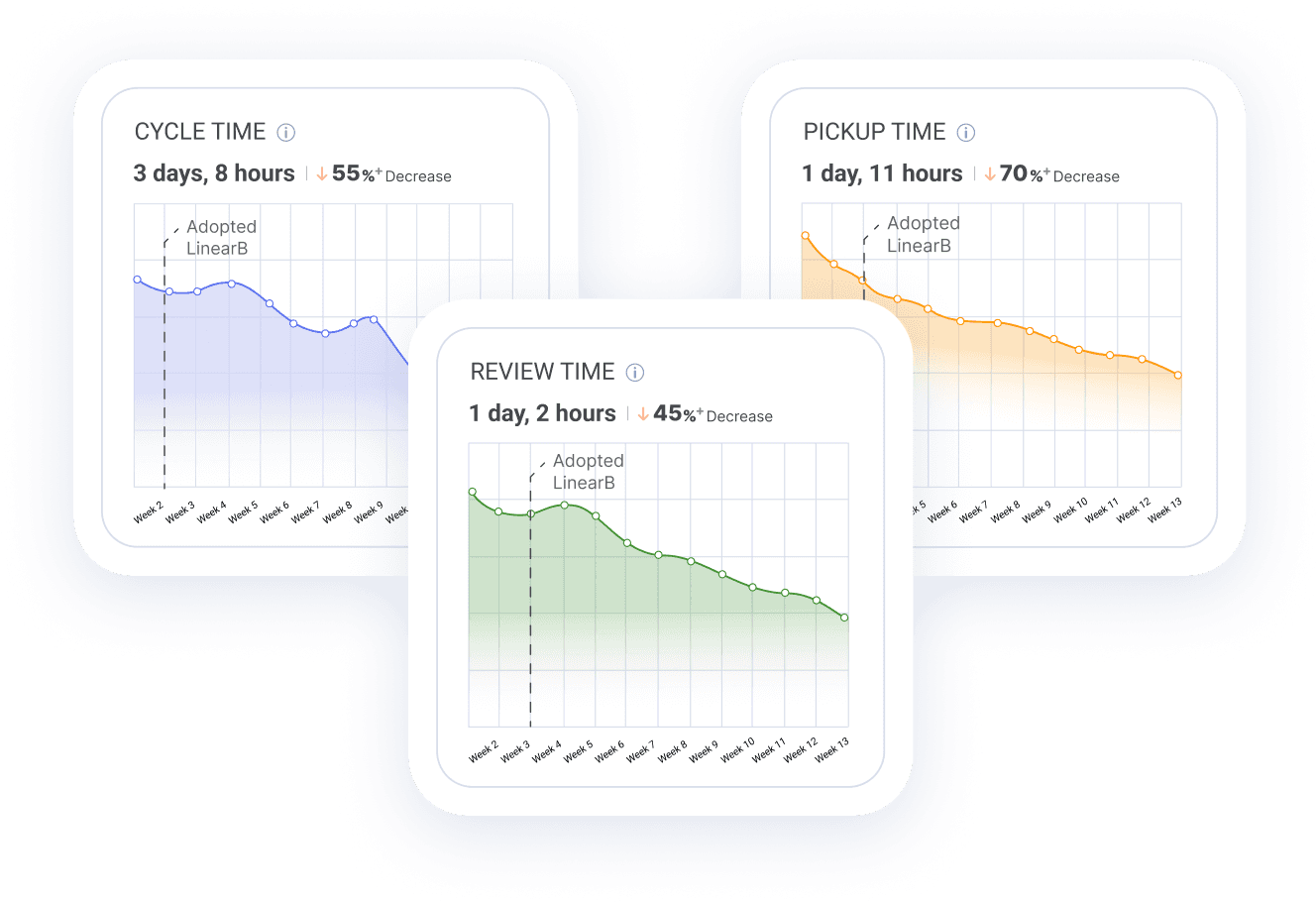Intsights Case Study
Correlating Git & Project Data Leads to Continuous Success
Company
Market
Cybersecurity
Engineers
65
LinearB user
1.5 yrs
Key Improved Metrics
Cycle Time
Review Depth
Pickup Time
Deploy Frequency

Data Revealed Leads To Continuous Improvement
Engineering leaders who utilize data to improve their teams have learned that the manual processes used for pulling data get deprioritized when scaling. Instead, organizations using automation to streamline engineering data make it easy for leaders to provide confident answers to executives and data-driven decisions for their teams.
Eighteen months ago Intsights VP of R&D, Amir Hozez, knew if he wanted a data-driven engineering organization, he would need to streamline engineering team data directly to the team leaders themselves. He needed a platform that would automatically process his engineering data and make it accessible without manual processes. He needed Development Pipeline Orchestration with LinearB.
"The manual work that went into collecting our engineering data created a barrier between our managers and their data."

A Cycle Time Case Study
Unshipped code has no value to customers. So when Amir heard feedback from the developers about having to wait days to get a Pull Request picked up for review, he knew there was a problem. But without team metrics like Cycle Time or Deployment Frequency to backup the feedback, he had trouble effectively communicating the issue to the team leaders. The problem persisted.
Within days of adopting LinearB, Amir was able to see his engineering team metrics for the first time. He knew the PR Pickup Time was going to be high, but he was taken aback when a staggering 6 Days showed up. It was time to take action.
Three Pillar System

Armed with new data, Amir was finally able to clearly communicate the problem to the team leaders by showing them how their Cycle Time broke down across multiple sprints. Now that everyone could visually understand the problem, they were able to set a trackable goal to reduce the number.
Utilizing data from LinearB, Intsights team leaders were able to identify the two main issues. Using LinearB to pinpoint the specific Pull Requests that were causing the issues, they realized only a small number of people had permission to review Pull Requests and Merge.
With the bottleneck identified, the team decided they needed to increase the number of engineers who were able to provide Pull Request reviews. Over the next three months the Intsights team focused on training more engineers to provide reviews and expand merge permissions.
By the end of the quarter the team was able to celebrate a 76% reduction of Pull Request Pickup Time, from 6 days to 35 hours. “We had to start measuring our PR Pickup Time in hours instead of days, a full order of magnitude difference.”
LinearB customer data Shows 80% of organizations see 48% Cycle time reduction within the first 4 months.

Communicating with Confidence
The case study above is a clear example of the tactical power LinearB’s Software Delivery Intelligence platform provides. But the true secret of its success comes from the confidence it provides to leadership.
Gut feeling and qualitative feedback can only take an organization so far. As companies begin the scaling process, real maturity begins with data. By taking a data-driven approach to decision making, engineering managers become more confident in their decisions, individual
contributors are able to focus their efforts on solving the right problems, and engineering leaders like Amir at Intsights are able to communicate with confidence at the executive table.
“Streamlining our data with LinearB and taking a data-driven approach has been a natural step in our scale-up journey. Both to scale our organization as well as to scale ourselves as engineering managers.”